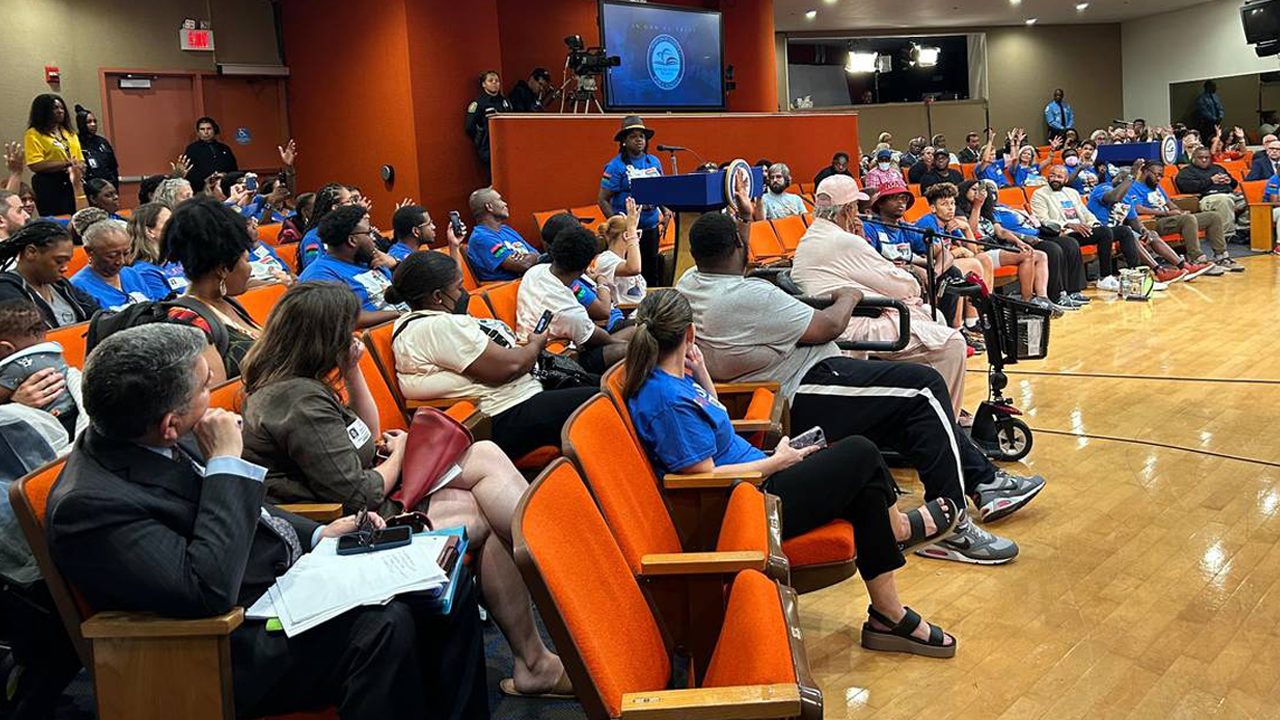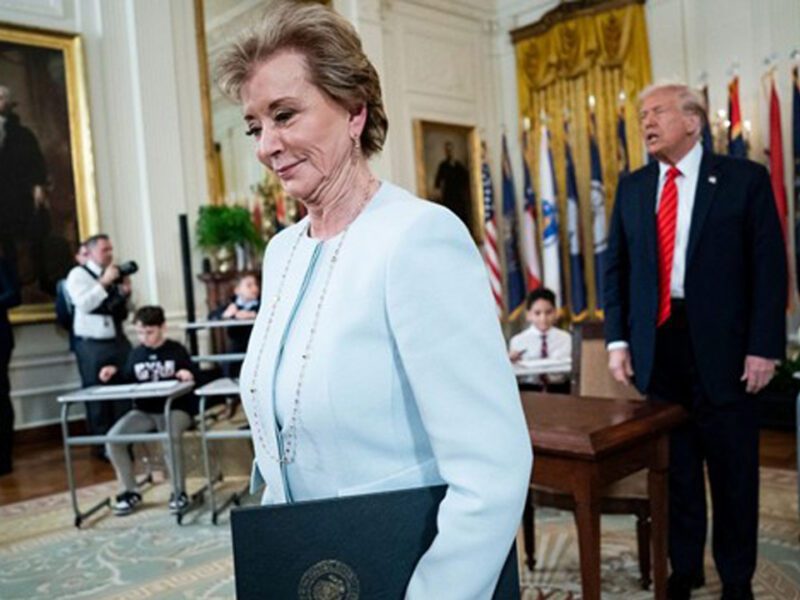
Miami-Dade School Board gets an earful from the public about book restrictions
Miami Herald | By Sommer Brugal | June 22, 2023
Parents, community members and young people flooded the Miami-Dade School Board meeting on Wednesday to express concerns about the ease of objecting to books, the dangers of restricting access to certain titles and the need to change how the district handles book challenges — despite the board already having passed a measure to review its policy.
The policy — proposed by Steve Gallon III — calls for board members and district staff to be notified when a book challenge results in the reassignment or removal of a title. Existing policy did not request that objections or decisions be known and only required a school-level review committee to determine whether a book should remain on shelves.
The calls to review and possibly update existing policy passed unanimously and without discussion from board members early in the afternoon. Nevertheless, community members — many who were a product of the school district — showed up later in the day to speak out against what they perceive to be a growing trend of trying to restrict what can and can’t be taught or read in the state.
Groups like Families Against Banning Books, the Miami-Dade and South-Dade NAACP branches and the Transformative Justice Coalition organized most of the attendees.
SPEAKING OUT ABOUT BOOKS RESTRICTIONS AT GRAHAM K-8
Most speakers expressed frustration about the recent decision by a review committee at Bob Graham Education Center, a K-8 in Miami Lakes, to restrict three books and an inaugural poem to middle school students. They argued one parent alone should not have the power to influence what is or isn’t available in the library. (The district has maintained no books were banned, just moved to a different part of the library center. Reading advocates say it’s still a restriction to younger students.)
Some speakers pointed to efforts to remove books across the state and the dangers of restricting books and limiting access to certain ideas and perspectives from young people. Many criticized the new laws targeting classroom instruction that seek to restrict or ban discussions of race or LGBTQ issues.
Others evoked their Cuban heritage and highlighted what they believe to be the similarities of book restrictions on the island and how they’re appearing in Florida.
“Democracy is difficult. It’s messy. That’s why dictators like to ban artists. That’s why they like to ban art, because it is complicated and it makes us feel for other human beings,” said Carmen Pelaez, an acclaimed Cuban-American playwright in South Florida. “As far as I know, there are two people that have tried to ban the story of Celia Cruz: Fidel Castro and Ron DeSantis.”
(According to a report by PEN America, an anti-censorship and writers group, “Celia Cruz, Queen of Salsa,” by Veronica Chambers and Julie Maren, was among the more than 170 titles banned from Duval County schools.)
Pelaez also reinforced a message many others spoke about: Children need to see themselves represented in the stories they read. Removing the titles, speakers argued, is a disservice to the district’s youth.
WHAT SPARKED THE OUTCRY?
Last month, the Herald reported that a public school in Miami-Dade County issued restrictions on three books and one poem — Amanda Gorman’s “The Hill We Climb,” which she recited at President Joe Biden’s inauguration — for elementary-aged students after one parent claimed they included topics that were inappropriate for students and should be removed “from the total environment.”
The other titles were “The ABCs of Black History,” “Cuban Kids” and “Love to Langston.”
News of the decision — made by a school materials review committee — spread quickly, and the district and school board received national pushback for the decision. Many board members later said they were upset to have found out about the issue through the media.
“I was somewhat miffed to learn about an issue through the media that created a public firestorm and a national embarrassment and debacle,” Gallon said at the school board committee meeting earlier this month.
Gallon said he proposed the policy change to improve transparency around certain decisions regarding books and classroom materials.
Among the updates, the policy will also require the district to provide “related training” to staff who address title challenges, such as a rubric or guideline when determining if a title is appropriate. Those policy provisions, Gallon argued, were not implemented properly, and he referenced the “woefully deficient” form and the confusion surrounding what is considered appropriate.
District staff is expected to provide an update on the possible changes to current policy by the board’s regular monthly meeting in August.





